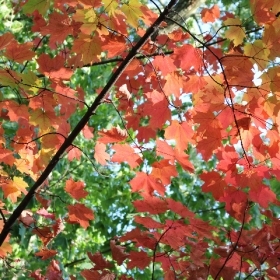An architect’s rendering depicts what the entrance to the Camilla Chandler Frost ’47 Center for the Environment in the new Science Center will look like.
It might surprise people when they encounter Wellesley’s new Camilla Chandler Frost ’47 Center for the Environment for the first time to learn that its faculty director is not a biologist, an ecologist, an economist, or a political scientist, but a philosopher.
Founding a center had long been under discussion when Erich Hatala Matthes, associate professor of philosophy, joined the faculty eight years ago. “I’ve been part of the environmental studies advisory faculty since I came to the College,” he says. “I was coming on board with a plan to teach environmental ethics. That was part of the job I was hired for in moral philosophy.”
The Frost Center will ultimately have a physical home in the new Science Center. “Interdisciplinary centers are the wave of the future in the sense that a lot of people are thinking more carefully about ways in which we can support each other and work together across disciplines,” Matthes says. “The center is going to be the home of environmental studies, and that is going to be huge. Historically, the ES faculty have been distributed all over campus. They never had a central place where faculty run into each other on a regular basis, where students might come to meet with one member of the ES faculty and happen to see another one. Those kinds of serendipitous events that are really important to the life and identity of a department really couldn’t happen for environmental studies. It’s going to be tremendous for students and faculty to be in one location.”
As part of its programming when the College is in session, the Frost Center holds open meetings (by Zoom, at the moment) every Wednesday morning from 10 to 11 a.m. Anyone from the community is welcome and encouraged to attend. These meetings involve a mix of coordinating environmental activities on campus, sharing and shaping programming ideas for the Frost Center, and discussing current environmental news. One week last fall, a Frost Center student ambassador shared reflections on and images of the impact of the West Coast wildfires, then led a discussion among attendees that ranged from climate change to the use of the labor of incarcerated people in fighting the fires.
The gatherings have been well attended, Matthes says. “Folks just keep showing up week after week for these community meetings. We’ve never had fewer than 25 people in the room. It’ll be much better when we can be in person, obviously, but it’s been nice to see the energy that people have coming together, even under these adverse conditions.”
To encourage dialogue across the community, the Center has begun hosting what will be an annual program in which participants will read and discuss a book of relevance to the environment. The inaugural book discussion in fall 2020, of Braiding Sweetgrass: Indigenous Wisdom, Scientific Knowledge and the Teachings of Plants by ecologist Robin Wall Kimmerer, was co-hosted with the Native American Student Association. Matthes cites that event as an example of the center’s broad reach. “The Native American Student Association isn’t, on its face, an environmental organization. But the group has important interests that are related to the environment, so we wanted to help provide a platform for them,” he says.
The Frost Center seeks to “bring people together, to be a space where all of the different folks who are working on environmental issues all across campus can come together to support each other, to work together, to make connections,” Matthes says. “The goal is primarily to be a home for all of the environmental stuff happening on campus, but also to make the house bigger. The house metaphor, the home metaphor, is an interesting one, because the Greek term oikos, meaning home, is the root of ecology.”
To learn more about the Frost Center for the Environment, visit Wellesley.edu/frost.








We ask that those who engage in Wellesley magazine's online community act with honesty, integrity, and respect. (Remember the honor code, alums?) We reserve the right to remove comments by impersonators or comments that are not civil and relevant to the subject at hand. By posting here, you are permitting Wellesley magazine to edit and republish your comment in all media. Please remember that all posts are public.